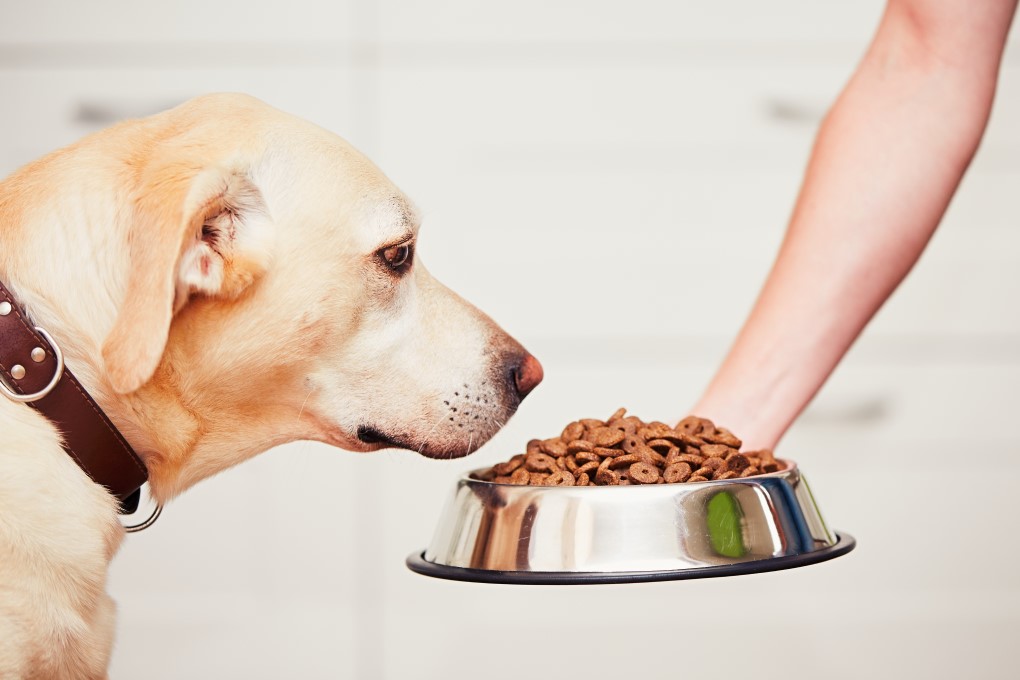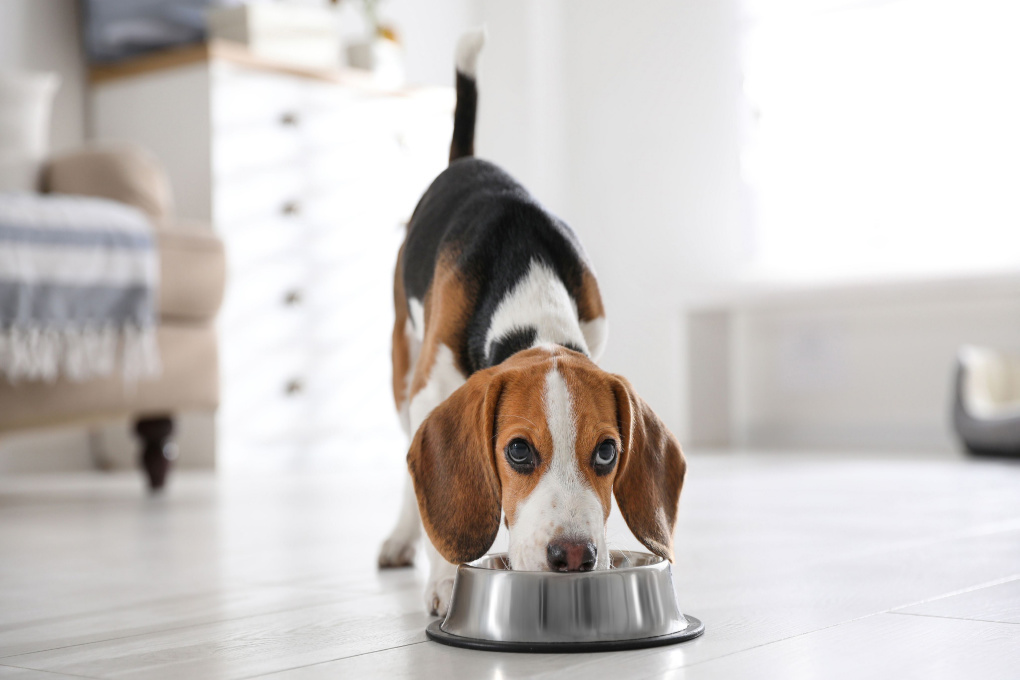We all know how allergies can affect a person’s everyday life. Either you or somebody you know will have been struck down by a sneezing fit, itchy eyes or even sickness following a nasty reaction to a nearby irritant. Unfortunately, they can also end up playing a serious role in our dogs’ lives as well.
Allergies are when the immune system reacts to a foreign substance in an abnormal way. Most allergens come from plants, animals, insects, dust and food. And that last one – dog food allergies – are actually a lot more common than you may realize.
Our four-legged friends can form allergies to food at any age, although they do tend to appear in earlier years. Once they develop an allergy to a certain food type – and we’ll look at the common culprits later on – then there’s every chance it will be with them for the rest of their lives.
All breeds are susceptible to these irritating sensitivities, and reactions range from unpleasant itchiness to severe vomiting. Recognizing the symptoms and acting on them early is vital if your pooch is going to get the right kind of assistance. The longer their reaction goes untreated, the more chance there is of your furry-friend suffering long-term effects. There are differing levels of severity so it’s important you know what to look out for.
Life-threatening allergic reactions are rare, but they can happen. If your pet is struggling to breathe then seek medical attention immediately.
Signs your dog has had an allergic reaction
1. Vomiting. A dog vomiting may be caused by a number of reasons. They may have eaten something they don’t like, or they may have wolfed it down too quickly. It could also be in response to a food allergy. Allergies can cause the body to react in different ways, and stomach distress is often one such reaction. Vomiting can also be brought on by an anaphylaxis shock, which is where the immune system floods the body with chemicals after being triggered by an allergic reaction. This is the most severe reaction a dog can have to an allergy, and will require immediate medical care.
2. Diarrhea. Like with vomiting, there can be numerous causes behind a pooch suffering from diarrhea. Food allergies may be one, but always check for other symptoms as well in case their tummy trouble is linked to something else. Rapid onset diarrhea may be a sign of a severe allergic reaction, so don’t waste any time in contacting your vet if that’s the case. Similarly, if your dog’s been struggling with diarrhea for longer than a day, schedule an appointment.
3. Irritability. Eating food that causes an allergic reaction will almost certainly lead to irritation in your four-legged friend. Whether it be digestive distress or a nasty rash, these irritating symptoms are going to leave your pup uncomfortable and very unhappy. Have you noticed them acting out more? Has their mood changed significantly? Are they pacing around the house? Irritability can manifest itself in so many ways it can be difficult to pinpoint the cause. If you do think it’s something they are eating then slowly change their diet and see if you notice an improvement in behavior.
4. Itchiness. How annoying it is when you have an itch that just won’t go away? Imagine how infuriating it can be for our poor pooches, especially if their prickly problem goes undetected for any amount of time. Itchiness can be brought on by parasites, dry skin, and allergies. Common places dogs with food allergies itch are their ears and their paws. Look out for excessive scratching or licking, or any red marks on the skin. Try eliminating potential trigger foods. If that doesn’t work, contact your vet who will help uncover the underlying issue.
5. Sneezing. The occasional sneeze is nothing to be concerned about. However, a dog that suddenly starts sneezing excessively, or over a long period of time, could be struggling with something more serious. Seasonal allergy-like symptoms like sneezing, a runny nose or red eyes can prove extremely bothersome for our pups. If they’re extra itchy on top of this then there’s a real chance it’s an allergy. Dogs can suffer from seasonal allergies due to pollen in the air, although it can be related to food as well.
6. Hair loss. A nasty food allergy can occasionally cause dogs to lose their hair. Dogs do naturally shed their fur so there’s no need to start worrying if you begin seeing strands of hair all over the carpet. However, if you’ve started seeing larger lumps on the floor, or bald spots on their body, it’s time for action. The hair loss could be because of excessive scratching or the body’s reaction to an allergy. Whatever the reason, you should look to remedy the situation as quickly as possible. Once treated their hair should begin to grow back.
Common foods that dogs are allergic to
Allergies are serious business. Treating them quickly and effectively is paramount if we’re to keep our dogs happy and healthy.
Before talking about which foods a dog is more likely to be allergic to, it is worth noting that there is a difference between allergies and intolerances.
Both involve negative reactions to food, but whereas allergies trigger an immune system response, intolerances are where a dog is struggling to digest a certain ingredient. Dogs tend to be most commonly allergic to proteins. That list is fairly lengthy, and includes beef, dairy products, chicken, lamb, fish, chicken eggs, corn, wheat, and soy.
Our furry friends are not actually born with allergies, and the likelihood of them developing one actually increases through being fed the same ingredients over and over again. Due to the fact there are so many potential allergens out there, it can be difficult to pinpoint the offending food type when a reaction occurs.
A food elimination trial is probably the best place to start. Gradually strip their diet right back to basics, until the allergy subsides. Then slowly begin re-introducing ingredients, closely watching for signs of a reaction. Once you have isolated the irritable ingredient, knock it off the grocery list for good. Allergies rarely go away.
If you have had to remove a pesky protein from their diet and you’re looking for a nutritional pick-me-up, Applaws Taste Toppers offer a wide range of flavorsome alternatives. The Lamb with Zuccini, Carrot & Chickpeas in Gravy Pouch and the Beef with Green Beans, Sweet Potato & Red Pepper in Broth Pouch are both firm favorites, and there’s plenty more.
Most food allergies can be managed at home, but if you’re struggling to get to the root cause then seek advice from a vet.






